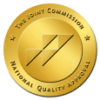Confidential, results-driven care tailored to high-responsibility careers. The Professionals Program in Tennessee provides a private path to stabilization and recovery for physicians, nurses, attorneys, executives, pilots, first responders, and other licensed or high-visibility professionals. You can expect flexible scheduling, strict privacy, rapid stabilization when safety is a concern, and a clear plan for a safe return to work.
Our approach blends evidence-based therapies with performance-ready routines so you can restore health, protect your credentials, and rebuild trust on the job.
This is rehab for professionals delivered with precision, discretion, and measurable outcomes within a complete system of professionals addiction treatment.
What Is an Professionals Addiction Recovery Program in Tennessee?
An executive or professionals program is specialized addiction and mental health care designed for people whose roles carry public trust, licensure, or high-stakes performance. The goal is straightforward: keep you safe, stabilize symptoms quickly, and return you to effective practice with a plan that protects your career and wellbeing.
- Care begins with a confidential assessment that looks beyond substance use alone. Your evaluation covers medical and psychiatric history, current medications, sleep, stress load, and the specific risks and requirements of your profession.
- From there, you receive an individualized treatment plan with clear objectives, session cadence, and communication boundaries. Discreet communication is standard. With your written consent, the team coordinates only with the people or entities you authorize, and updates are purposeful, minimal, and on a need-to-know basis.
- Treatment addresses multiple domains at once because professionals rarely struggle with a single issue. Alongside substance use interventions, the program treats co-occurring anxiety, depression, trauma-related symptoms, burnout, and sleep disruption.
- Evidence-based therapies are matched to what you need most: cognitive and behavioral therapies for thought and habit patterns, skills for emotion regulation and crisis tolerance, and sleep restoration protocols to rebuild cognition and mood.
- When indicated, trauma-informed care and EMDR are available. Medication management is careful and role-aware, with attention to safety-sensitive duties.
- When licensing, privileging, or monitoring requirements apply, the program helps you navigate them. With your consent, clinicians can coordinate documentation, progress summaries, and return-to-work recommendations that match regulatory expectations while protecting your privacy. You will receive coaching on how to communicate appropriately with employers, boards, or credentialing bodies, including what to share, what to keep private, and how to frame your plan for ongoing care.
Placement within the continuum is individualized. Some professionals need medical detox first for safety and comfort. Others benefit from residential stabilization to reset sleep, nutrition, and routines away from triggers.
Many can engage intensively in outpatient levels of care that accommodate court calendars, clinic days, hearings, flights, or client obligations.
Regardless of entry point, the structure is the same: a clear start, measurable goals, regular progress checks, and a defined aftercare plan.
- Peers matter, so you will also find programming that recognizes the unique pressures of leadership and licensure. Executive and professional process groups let you speak openly about performance anxiety, boundary setting, reputational risk, and ethical stress.
- Skill labs rehearse real scenarios such as client dinners, conference travel, night call, and year-end deadlines. These focused settings complement core services like alcohol rehab for professionals, substance abuse treatment for professionals, and drug rehab for professionals.
- Outcomes guide every decision. The program measures safety indicators, symptom reduction, sleep and cognitive recovery, adherence to medication plans, and readiness markers for return to duty. Functional benchmarks matter as much as clinical ones, including punctuality, documentation accuracy, communication tone, and tolerance for routine stress.
By the time you step down in care, you leave with practical tools, a right-sized schedule, and a maintenance plan you can follow on busy days. The intent is not only to help you abstain or reduce risk, but to restore stability, performance, and well-being in a way that lasts.
Signs You May Need Executive Addiction Treatment Program
High responsibility jobs can hide mounting problems behind productivity, credentials, and a full calendar. If you’re wondering whether it is time to act, use this focused check to take an honest look.
Early recognition shortens the path to recovery and protects your career, relationships, and health. Programs designed as rehab for professionals are built to address risk quickly and discreetly, so you can stabilize and plan a safe return to work.
Self-Screening Checklist
- Morning relief useDo you ever need a drink or medication in the morning to steady your hands, calm anxiety, or ease queasiness before rounds, court, flights, or meetings?
- Daily use or binges tied to stress or performanceIs substance use the automatic response after a high-pressure day, a difficult case, a bad outcome, or a late deadline?
- Cravings that interrupt focusDo urges pull attention away from patient care, clients, brief writing, deposition prep, dispatch duties, or cockpit checklists?
- Mood swings and agitationHave colleagues, staff, or family commented on irritability, short fuse moments, or sudden drops in motivation?
- Sleep onset or maintenance insomniaDo you struggle to fall asleep without substances, wake at 3 a.m. with racing thoughts, or need more than caffeine to function?
- Tolerance and withdrawalDo you need more to get the same effect, or feel shaky, sweaty, nauseated, or anxious when you try to cut back?
- Missed deadlines or documentation errorsAre charting mistakes, billing rejections, missed filings, or quality flags increasing?
- Conflicts at work or homeAre you more defensive with supervisors, staff, partners, or family? Are small issues escalating quickly?
- Failed attempts to cut backHave you promised yourself you would limit use to weekends or certain events and found the limits hard to keep?
- Risky use before shifts, hearings, procedures, flights, or court appearancesHave you ever used in a window that could compromise judgment, reaction time, or ethical obligations?
If two or more items apply, it is time to speak with a clinician who understands professionals addiction treatment. The goal is not punishment. It is rapid stabilization, privacy, and a plan that protects both safety and career.
What Happens During Our Professionals Addiction Treatment Program in Tennessee?
- Schedule a confidential consult.
Choose a program that offers discreet intake, same-day or next-day assessments when possible, and clear guidance on communication boundaries. During the consult, you will review recent use patterns, medical and mental health history, medications, sleep, and any safety-sensitive duties. Expect practical safety planning that covers the next seventy-two hours, including strategies for cravings, sleep, and work obligations. - Prepare for a rapid assessment.
Before the call or visit, write down what and how much you are using, the last date and time of use, and any withdrawal symptoms you have noticed. List current prescriptions and supplements, including doses. Note recent incidents at work or home that concern you. Bring contact information for a trusted emergency contact. - Decide who needs to know.
Not everyone does. Many professionals choose one trusted person to support logistics. If your role involves safety-sensitive tasks or you are already under a monitoring agreement, ask the program how they coordinate with boards or employers using your written consent. Communication should be minimal, purposeful, and documented. - How to talk with HR or a trusted colleague if needed.
Keep it concise and factual. You can say you are addressing a health matter that may require scheduling adjustments for a short period while you complete the evaluation and follow recommended care. Avoid detailed personal disclosures. Ask about leave options, short-term disability, or protected time if your organization offers them. - Gather documentation
Collect a government ID and insurance card if you have one. Print or save recent lab results, imaging, or relevant medical notes. Bring a current medication list and pharmacy information. If licensing or credentialing bodies are involved, locate the most recent correspondence or agreement. Having these materials ready speeds decisions and reduces the number of calls you need to make while you’re stabilizing. - Plan the next seventy-two hours.
Arrange safe transportation to and from the assessment. Clear nonessential commitments. Prioritize sleep, hydration, and regular meals. If withdrawal is possible, avoid working alone or performing safety-sensitive tasks and follow medical guidance promptly. - Set a simple support structure.
Identify one meeting you can attend today or tomorrow, one person you can call if urges spike, and one small routine that will help you start and end the day calmly. Small, repeatable actions create momentum.
Therapies Used in Professionals Rehab in Tennessee
Professionals need care that is clinically rigorous, time-efficient, and discreet. The goal is to reduce risk quickly, restore stability, and return you to competent practice with tools that hold under pressure.
The therapies below are selected and sequenced for professionals’ addiction treatment, with special attention to safety-sensitive duties, documentation standards, and the realities of leadership and licensure. [1]
Core Modalities
CBT for thought and behavior patterns
Cognitive Behavioral Therapy helps you identify the loops that drive use and burnout. [2]You will map triggers, automatic thoughts, and consequences, then test new responses in real settings such as pre-shift huddles, court calendars, board meetings, or call nights.
CBT worksheets become short, repeatable drills you can use between sessions.
The outcome is practical: fewer high-risk reactions and more deliberate choices when the stakes are high.
DBT skills for emotion regulation and distress tolerance
Dialectical Behavior Therapy skills give you a compact toolkit for crisis moments and long days. [3] Emotion regulation increases your ability to recognize escalating states early and intervene with targeted actions like paced breathing, temperature shifts, or brief grounding.
Distress tolerance teaches what to do when the only way out is through, so you can ride out urges without acting on them. Interpersonal effectiveness supports clearer requests, firmer boundaries, and clean repairs with colleagues and family.
Motivational Interviewing for change momentum
Motivational Interviewing respects ambivalence and converts it into action. You will clarify what you value in your career and life, connect those values to specific behavior changes, and build commitment that lasts beyond the initial crisis.
Sessions focus on your language for change, your reasons, and your plan. The tone is collaborative and direct, which aligns well with professional culture.
Trauma-informed therapy and EMDR when indicated
Many professionals carry cumulative stress injuries from adverse events, moral injury, or high-consequence errors. Trauma-informed approaches create safety and predictability in care, while EMDR can process stuck material that keeps the nervous system on high alert.
Treatment is paced to protect sleep and function, with clear guardrails so you are not destabilized while meeting ongoing responsibilities.
Medication management aligned with safety and licensing considerations.
Medication decisions are individualized and aligned with professional standards. Prescribers weigh symptom relief, drug interaction risks, and any restrictions that apply to your role.
When appropriate, non-sedating options, sleep protocols, and relapse prevention medications are considered. [4] Communication with boards or employers occurs only with your consent and is limited to what is necessary.
Performance and Function
Sleep restoration protocols
Sleep is a force multiplier. You will receive a structured plan that addresses timing, light exposure, caffeine use, evening nutrition, and pre-sleep wind down. When needed, short-term pharmacologic support is paired with behavioral strategies. Restored sleep improves mood, attention, and impulse control, which directly reduces relapse risk.
Stress physiology education
Understanding how your system responds to acute and chronic stress helps you act earlier. Brief, targeted education explains the role of cortisol, adrenaline, and circadian rhythm in cravings and irritability.
You will learn micro resets that fit into busy days, such as two-minute breath work, five-minute walks between cases, or short grounding exercises before difficult calls.
Cognitive efficiency and attention strategies
Structured focus blocks, meeting hygiene, and documentation routines reduce error risk. You will practice externalizing tasks, triaging decisions, and using short recovery intervals to maintain performance.
For those with attention or executive function concerns, clinicians provide screening and role-aware interventions that do not compromise safety.
Communication and boundary skills for leadership roles
Leaders need clean conversations. You will rehearse concise scripts for delegating, setting limits, and defusing conflict without over-explaining.
Training includes response plans for common stressors like last-minute travel, client entertainment, or shift swaps that threaten recovery routines. The objective is to protect your time and energy while maintaining a professional tone.
Peer and Group Formats
Executive recovery group for shared role realities and confidentiality norms
A dedicated executive recovery group pairs you with peers who face similar visibility and responsibility. The culture is punctual, agenda-driven, and discreet. You will discuss performance anxiety, reputational risk, and ethical strain with people who understand them firsthand. Group agreements emphasize confidentiality, practical troubleshooting, and accountability that is firm and respectful.
Skill labs for real-world scenarios
Skill labs turn theory into muscle memory. You will practice plans for cravings, high-risk events, and travel routines. Drills include how to handle conference receptions, client dinners, holiday parties, and post-verdict or post-procedure decompression.
You will script alcohol free hosting, learn to pre-order safe beverages, and build exit strategies that feel natural.
Travel labs cover packing routines, hotel room setups that protect sleep, and meeting lookups in unfamiliar cities.
The emphasis is on preparation, not willpower.
Family and partner sessions by consent
Support at home is a powerful buffer against relapse. With your written consent, clinicians offer structured sessions that teach partners how to encourage without enabling, how to respond to warning signs, and how to support sleep and scheduling needs. Conversations are time-limited and focused. Boundaries are clear, so your privacy remains intact.
These therapies are integrated into a framework designed for substance abuse treatment for professionals. Sessions are short and targeted, homework is actionable, and progress is measured by clinical and functional markers.
You will see the impact in calmer mornings, steadier evenings, fewer near misses, and a schedule that works on busy days, not only ideal ones. The program’s design respects your role while asking for consistent, realistic effort. That combination is what turns treatment gains into reliable performance and lasting health.
Inpatient vs Outpatient for Professionals Rehab
Selecting a track is about matching clinical need, risk, and real-world responsibilities. The right level gives you enough structure to stabilize quickly without disrupting your career more than necessary. For many people in rehab for professionals, the decision begins with safety, then moves to function and privacy.
Inpatient Benefits For Professionals with Addiction in Tennessee
-
Medical stabilization, 24-hour support, digital boundaries, step-down readiness
Inpatient care provides a contained environment where symptoms can be managed rapidly and discreetly. You receive round-the-clock monitoring, targeted medications when appropriate, nutrition and sleep restoration, and a daily therapy schedule that removes decision fatigue.
Clear digital boundaries help you step away from reactive communication so you can reset. From day one, staff plan your step down to partial hospitalization or intensive outpatient so you leave with momentum rather than uncertainty.
-
Best for acute risk, withdrawal, severe impairment, or repeated relapse
Choose inpatient when any of the following are present. You are at risk for complicated alcohol or benzodiazepine withdrawal. You are experiencing medical or psychiatric instability such as severe insomnia, panic, suicidality, or uncontrolled depression.
Your use pattern involves high daily amounts, polysubstance exposure, or recent overdoses. Your performance is deteriorating with errors, complaints, or unsafe decisions. You have attempted to quit several times but returned to use quickly.
In these scenarios, the protected setting of alcohol rehab for professionals or drug rehab for professionals compresses risk and resets the system faster than outpatient work can.
Outpatient Benefits For Professionals with Addiction in Tennessee
-
PHP, IOP, OP with flexible scheduling and remote participation when appropriate
Partial Hospitalization, Intensive Outpatient, and standard Outpatient allow you to stabilize while remaining connected to work and home. PHP runs most weekdays and is often the next step after inpatient. It extends daily structure, medication management, and skill practice while you begin to reengage with real-world tasks.
IOP reduces hours but maintains multiple sessions each week for therapy, relapse prevention, and accountability.
OP provides focused weekly therapy and medication follow-up that fits a full work schedule. When appropriate and clinically safe, certain sessions may be attended remotely to accommodate travel, court obligations, or call rotations.
-
Protecting work identity and handling travel or court calendars
Outpatient care is built to help you manage visibility. Scheduling cluster sessions early or late protects key work blocks and allows discreet participation without public disruption.
You will learn calendar tactics for high-risk weeks, including front-loading meetings before travel, securing local recovery options at your destination, and building a backup plan if a trial runs late or a case list expands.
The team works with you on communication scripts for colleagues that preserve privacy while securing the time you need for care.
Putting It Together
Clear continuum from detox to rehab to aftercare
Levels of care are not competing products. They are stages of one plan. Some professionals begin with medical detox, move into inpatient for stabilization, step down to PHP or IOP to practice skills under supervision, and then transition to OP paired with structured housing or a strong home routine.
Others with lower risk profiles can start in PHP or IOP and progress to OP once sleep, urges, and performance are stable. Aftercare anchors the gains through alumni services, peer support, and scheduled check-ins during the first critical months back at full duty.
Sample pathways for different roles and risk profiles
- A hospitalist with nightly drinking, early withdrawal symptoms, and charting errors might complete seven to ten days of inpatient to stabilize vitals and sleep, then step to three weeks of PHP, four to six weeks of IOP, and twelve months of OP with monitoring and peer support.
- A trial attorney with episodic binge use tied to verdict stress but no withdrawal risk might start with IOP, add medication support for cravings, attend targeted skill labs for client dinners and travel, and continue OP through the trial cycle.
- A senior executive with stimulant misuse and severe insomnia could begin with inpatient treatment to manage medical risk and reset sleep, then transition to IOP with cognitive efficiency training, structured work blocks, and a clear boundary plan for after-hours communication.
- A pilot or first responder under a monitoring agreement may require a documented sequence with defined milestones, frequent testing, and role-aware medication choices, often starting inpatient or PHP before IOP to satisfy safety requirements.
The decision is not about toughness or status. It is about fit. If risk is high, inpatient shortens danger and speeds stabilization. If risk is moderate and you can engage reliably, outpatient tracks deliver intensive therapy without stepping away from your role entirely.
Either way, the process should feel confidential, organized, and measurable, with clear criteria for stepping down.
Care for professionals works when it is precise. Start with an honest review of symptoms, obligations, and safety needs. Then choose the level that gives you the best chance to stabilize quickly and return to practice with confidence.
Levels of Care & Dual Diagnosis for Professionals in Tennessee
Pathway Overview — Detox → Residential → PHP → IOP → OP/Aftercare
Professionals benefit most when care is organized, role-aware, and sequenced. The right level at the right time lowers risk quickly and builds momentum that carries into work and home life.
This section outlines how medical detox, residential treatment, and outpatient levels connect, and how co-occurring conditions are treated within a single, coordinated plan designed for professionals addiction treatment.
Medical Detox and Residential for Professionals
Detox and residential treatment focus on safety and reset. The first priority is medical stabilization. Clinicians monitor vital signs, manage withdrawal with evidence-based protocols, and prevent complications. [5]
Sleep is addressed immediately. Restorative sleep is a cornerstone of judgment, mood, and reaction time. You will receive a structured wind-down routine, light and caffeine guidance, and, when appropriate, short-term pharmacologic support that aligns with safety-sensitive work.
Nutrition is rebuilt through simple, predictable meals that stabilize energy and glucose. Hydration, micronutrients, and regular meal timing protect mood and cognition while your system recalibrates.
Medication review is precise. Prescribers evaluate current psychiatric and medical medications for interactions, side effects, and fitness for your role. When adjustments are needed, they are made carefully with attention to monitoring and documentation.
Residential care adds daily therapy, skills practice, and a quiet environment with clear digital boundaries so you can reset habits before reentering a demanding schedule.
The goal is to leave this phase medically safer, sleeping better, nourished, and ready to learn at speed.
PHP, IOP, OP for Professionals with Addiction
Partial Hospitalization, Intensive Outpatient, and standard Outpatient provide intensive therapy while you re-engage with real life. The cadence is deliberate. PHP often runs on most weekdays and extends the structure of residential care. You practice relapse prevention plans, communication skills, and workplace routines while still under close supervision.
IOP reduces hours but maintains several sessions per week so you can work, meet with clients, or manage hearings while staying connected to support. OP offers weekly therapy and medication follow-up that fits a full professional schedule.
Skills rehearsal is central. Sessions include live drills for cravings, high-risk events, and travel. You will script responses for client dinners, conference receptions, and post-procedure decompression. You will practice calendar hygiene, including how to stack meetings early in the day, protect a sleep window, and build a backup plan when a case runs late. Real-world scheduling is baked in.
Treatment blocks are clustered around key work hours. When clinically appropriate, some sessions can be attended remotely to accommodate court calendars or travel. Progress is measured both clinically and functionally.
You will see the difference in steadier mornings, fewer near misses, and documentation that stays accurate under pressure. This is substance abuse treatment for professionals that respects your time and role.
Dual Diagnosis for Professionals
Many professionals present with substance use layered on top of anxiety, depression, trauma exposure, ADHD, or sleep disorders. Treating one without the other leaves risk on the table. Dual diagnosis care addresses both at once within one plan.
- Anxiety is managed with targeted CBT and mindfulness-based strategies that fit into minutes, not hours. You will learn early signs, rapid downshifts, and clear boundaries that prevent overload.
- Depression is addressed through behavioral activation, thought work, social rhythm stabilization, and role-aware medication options.
- Trauma-related symptoms and moral injury are handled with trauma-informed therapy and, when indicated, EMDR. Work is paced to protect sleep and function, so treatment does not destabilize performance.
- Attention concerns are screened carefully. For some, ADHD has been masked by achievement and only becomes obvious when stress rises or sleep fails. Interventions focus on external structure, task triage, cueing systems, and role-aware pharmacology when appropriate.
- Sleep disorders are assessed and treated with a blend of circadian strategies, cognitive work on sleep beliefs, and short-term medication support when justified.
Continuing Care
Aftercare keeps your support close while you rebuild your normal life. Use multiple layers.
Alumni services provide accountability and quick access to problem-solving. Mentoring connects you with someone a few steps ahead who understands your role and can normalize the ups and downs of the first year.
Professional peer groups, including an executive recovery group, let you discuss ethical stress, visibility, and boundary challenges with people who live them too. Virtual options add flexibility for travel weeks and late nights.
Set measurable goals for the first ninety days. Examples include a meeting routine that you can keep during a full workload, a sleep window you protect five nights per week, and a nutrition plan that covers breakfast and a protein anchor during the longest shift.
Add a budget for ride services during evening events and a fixed time for step-down check-ins. Define your early warning signs and name the two people you will contact within twenty-four hours if they appear.
For the first year, expand the goals. Aim for consistent therapy or coaching at a cadence that matches your stress cycles. Protect one recovery activity that you rarely miss, such as a weekly group or mentor call.
Keep a simple relapse response plan on paper and in your phone. If a lapse occurs, act quickly. Notify your clinician, return to a higher level of structure if needed, increase meeting support, and complete a focused review of what happened without shame or delay. Fast action keeps a lapse from becoming a relapse.
If alcohol were the primary issue, remember that situations with open bars, client entertainment, and travel are not outliers. They are part of the job. The best alcohol rehab for professionals prepares you to navigate these events with clear scripts, nonalcoholic options that feel natural, and exit strategies that protect your time and reputation.
If other substances were involved, carry the same clarity into medication storage, pharmacy routines, and social settings where drugs may be offered.
Life after rehab is not about white knuckling. It is about a plan that fits the way you work. When your risk map is current, your playbooks are rehearsed, and your support is easy to reach, you will notice fewer spikes, calmer evenings, and steadier performance at work. That’s what effective rehab for professionals delivers.
Medication Management
Coordinated psychiatry and precise monitoring hold the plan together. Medication choices are made with professional standards in mind. Side effects that impair vigilance, reaction time, or decision quality are avoided whenever possible.
Holistic Therapy
Monitoring includes symptom scales, sleep metrics, work function markers, and adherence checks. When licensing or monitoring agreements are involved, updates occur only with your written consent and are limited to what is necessary.
Fitness, nutrition, and recovery routines are integrated to support cognitive performance. Short movement sessions are placed at strategic points in the day to sharpen attention and regulate mood. Nutrition focuses on regular protein, complex carbohydrates, and hydration to stabilize energy across long shifts or travel days.
Recovery Routines for Professionals
Recovery routines include brief resets between cases, structured commutes that mark the end of the workday, and a consistent bedtime routine that holds even when the calendar is full.
The result is a comprehensive approach that treats symptoms, builds skills, and restores function in a way that can survive a busy season. Levels of care provide the scaffolding. Dual diagnosis work locks in durability.
When these pieces are coordinated inside a single plan for professional addiction treatment, you gain more than abstinence. You gain a repeatable schedule, a clear set of tools, and the confidence to return to high responsibility work with safety and stability.

Relapse Prevention and Life After Rehab
Recovery that lasts is built on clear awareness, simple routines, and support you can actually reach on a busy day. The goal is not perfection. It’s a realistic plan that keeps you safe during pressure cycles, travel weeks, and social events where alcohol or drugs are present. This section turns the work you did in treatment into a practical system you can carry into the next year.
Personal Risk Map
Start with a map of your own risk. List situations by role, calendar, travel, and social obligations.
- For role, identify the moments that spike stress or reward seeking. Examples include post-verdict decompression, back-to-back surgeries, overnight call, quarterly closes, or debriefs after critical incidents.
- For calendar, mark weeks with stacked deadlines, high-visibility presentations, or seasonal surges that stretch sleep.
- For travel, note hotels, time zone changes, and long layovers that disrupt meals and routines.
- For social obligations, name client dinners, conferences, charity events, and celebrations where alcohol is the norm.
For each item, add early warning signs. These can include short sleep, skipped meals, irritability, racing thoughts, or a specific craving that shows up at the same time of day. Then assign an action you will take within five minutes of seeing that sign.
Keep the actions small and repeatable. Sip water, eat protein, step outside for three minutes, text a sponsor, or review a coping card.
A good map is simple enough to use without thinking. This is the practical heart of professionals addiction treatment.
Yes, Your Insurance Covers Detox and Rehab Treatment

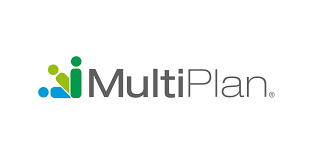
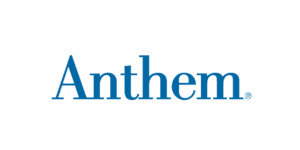
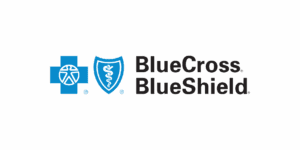
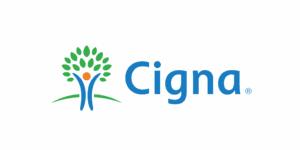







Why Choose Tennessee Detox Center for Professionals Addiction Treatment
Professionals need care that safeguards their reputation while restoring health and function. The design of the environment matters as much as the treatment plan.
These specialty features create a quiet, efficient setting where you can focus, stabilize, and prepare for a safe return to work without unnecessary exposure.
Luxury Options that Help You Do the Work
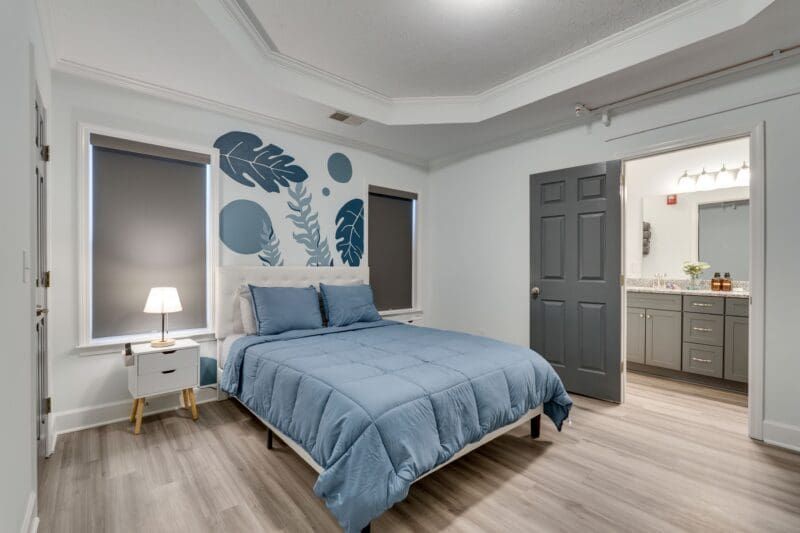
Private or Quiet Suites and Workspaces
Comfort and privacy make clinical work easier to sustain. Private suites create a calm base where you can decompress, organize the day, and sleep without disruption. Rooms are quiet, light-controlled, and arranged for simple routines that support recovery.
When approved, you can access small, thoughtfully designed work areas with reliable workspace access to handle essential tasks that cannot wait. This access is structured so clinical priorities remain first, while professional obligations don’t create unnecessary stress.
In a luxury privacy-focused program, the setting itself reduces friction and protects your confidentiality.
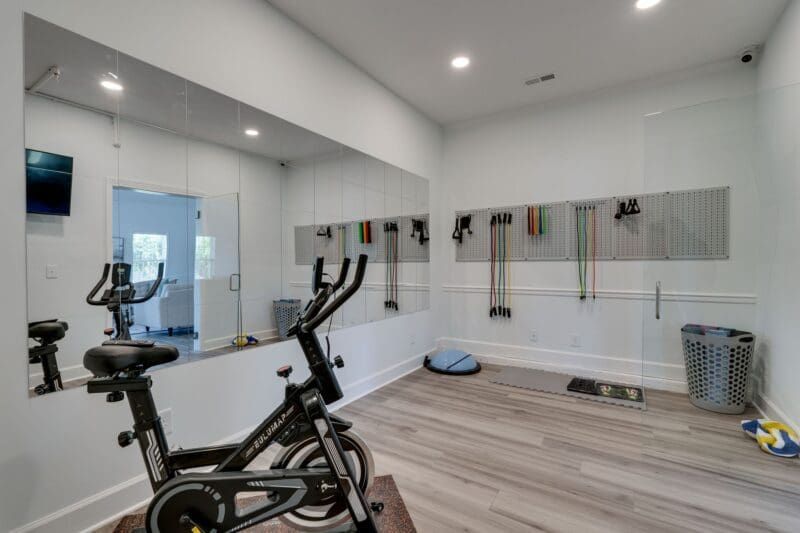
Culinary and Fitness Support
Physiology powers performance. On-site culinary support emphasizes balanced meals with steady protein, complex carbohydrates, and hydration to stabilize energy and mood.
If you travel often, staff help you build portable meal plans that hold up in airports and hotels.
Fitness options are practical and time-efficient. Short guided movement, mobility work, or light strength sessions are slotted into ten or fifteen-minute blocks to sharpen attention without draining bandwidth.
These supports make it easier to keep the fundamentals that reduce relapse risk and improve daily function.

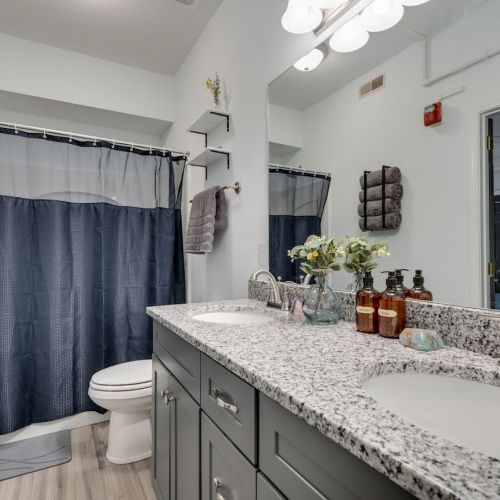






What Success Looks Like
Clinical and Functional Markers
Success is more than feeling better. It is visible in the clinic, in the courtroom, on the unit, and at home. In effective substance abuse treatment for professionals, clinical stability and daily function move together. You and your team define the target at intake and measure it throughout care.
Clinical markers include sustained abstinence or reduced risk use, where that is clinically appropriate and ethically permitted.
Urges become less frequent and less intense. Sleep returns to a predictable window, which restores cognitive clarity, steadier mood, and faster decision speed. Medication plans are followed and adjusted with precision.
Functional markers show up in performance. Documentation errors decline. Punctuality returns. You hold boundaries around start and stop times, protect a sleep window most nights, and build a weekly schedule you can keep during busy seasons.
Communication improves with cleaner requests, clear limits, and quicker repairs after conflict. Family and colleagues begin to trust your word again because it matches your actions.
Ethical and Career Considerations
Professionals also measure success by ethics and career safety. When consented, you receive concise communication templates for HR, medical staff offices, boards, or monitoring entities.
These focus on need-to-know facts, current status, and the plan for follow-up care. You practice how to speak about health and scheduling without revealing private details.
Return to work planning includes specific readiness markers, a phased reentry, and an escalation pathway if stress spikes. Calendars include protected recovery blocks and a backup plan for travel or court weeks.
You leave with a practical set of tools, a schedule you can follow, and a support system you can reach quickly. That is what success looks like for working professionals.
How to Start Professionals Addiction Treatment with Tennessee Detox Center
-
Confidential Call and Same-Day Assessments When AvailableBegin with a confidential call. You will speak with a trained specialist who understands high-responsibility roles and the realities of tight calendars. The conversation covers recent use patterns, medical and mental health history, medications, sleep, safety concerns, and any licensing or monitoring obligations. If risk is elevated and space allows, a same-day or next-day assessment can be arranged. The goal is speed without shortcuts, so you can stabilize and move into care that matches your needs. This is rehab for professionals designed to be precise and discreet from the first contact.
-
What to Bring and What to ExpectBring a government-issued ID, an insurance card if you have one, and active prescriptions in original labeled containers. Prepare a current medication list with doses and timing. If available, gather recent lab results or relevant medical notes. Pack seasonally appropriate clothing, simple toiletries, and recovery materials such as a journal or program literature. Leave valuables at home when possible. Upon arrival, you will complete a private intake, a medical screening, and a focused clinical assessment. You will review confidentiality preferences in writing, so communication happens only with your consent. If inpatient admission is indicated, you will receive a clear outline of the daily schedule, digital boundaries, and what the first seventy-two hours include. If you are clinically suitable for outpatient care, you will leave with an appointment schedule and immediate coping steps for cravings, sleep, and stress.
-
Payment and Insurance OverviewFees are transparent and explained in plain language. You will receive a written breakdown of housing and program costs where applicable, deposits, due dates, and what is included. Many clinical services, such as physician visits, therapy, and medication management, may be eligible for insurance coverage depending on your plan and level of care. Verification can be completed quickly with your consent, so you know what is covered and what your out-of-pocket responsibility may be. Financial clarity reduces stress and lets you focus on treatment. If you prefer, a designated contact may handle billing coordination on your behalf while your privacy settings remain intact. This is substance abuse treatment for professionals with a financial process that is predictable and respectful.
First Week Roadmap at Professionals Rehab in Tennessee
You will leave admissions with a simple written plan for the first week. The plan includes:
- Orientation that explains house or program standards, curfews if applicable, testing, meeting expectations, and safety practices.
- Schedule a build that places sessions at times you can attend reliably. Early or late therapy blocks are used when possible, so work obligations are protected without sacrificing care.
- Safety planning that identifies early warning signs, immediate coping steps, and who to contact if cravings or mood symptoms rise.
- Tech policy that clarifies when devices are off for sleep and treatment, and when limited use is appropriate for essential obligations.
- Family contact with consent that outlines what to share, how often to update, and how loved ones can be supportive without taking on enforcement roles.
If travel or court calendars are coming up, the team helps you script meeting options at your destination, plan evening routines that protect sleep, and prepare backup steps when schedules shift. If inpatient care is the first step, discharge planning begins on day one so the transition to partial hospitalization or intensive outpatient is smooth and timely.
The admissions experience should reduce uncertainty, not add to it. You will know who to call, where to be, and what to practice today, tomorrow, and the rest of the week. That clarity builds momentum and makes it easier to keep your commitments while you start to feel better.
FAQs About Our Professionals Program in Tennessee
Your privacy is protected by strict consent-based communication. Intake, scheduling, and records are handled through secure systems with need-to-know access only. No employer, board, or third party is contacted without your written authorization. If coordination is appropriate, updates are narrowly tailored to essentials such as fitness for duty or return-to-work timelines. Summary: You decide who is informed, what is shared, and when. This discretion is foundational to professionals addiction treatment.
Often, yes—especially in structured outpatient tracks. Schedules can cluster sessions early or late, protect key work blocks, and include limited remote participation when clinically safe. You will also learn calendar tactics for high-risk weeks, client events, and travel. In higher-risk situations, short inpatient stays may be recommended to stabilize sleep, mood, and cravings quickly, followed by a step-down plan that supports reentry. The goal in rehab for professionals is the right dose of care with the least disruption.
It depends on your role, jurisdiction, and any existing agreements. Many licensing bodies view proactive treatment favorably. With your consent, our documentation focuses on safety, adherence, and clear aftercare. You receive guidance on what to share, what to keep private, and how to frame a phased return to duty. Early action, strong follow-through, and precise records typically reduce long-term credential risk in substance abuse treatment for professionals.
Inpatient provides 24-hour support for acute risk, withdrawal, severe insomnia, or repeated relapse. It compresses danger and resets routines fast. Intensive Outpatient (IOP) delivers multiple weekly sessions for therapy, skills, and medication management while you remain connected to work and home. Many clients step from a brief inpatient stay to IOP, then to standard outpatient. Both tracks are crafted for rehab for professionals; choice is driven by safety and reliability of engagement.
Medication plans are individualized and role-aware. Prescribers weigh symptom relief against side-effect profiles that could impair vigilance, reaction time, or judgment. When indicated, relapse-prevention medications, non-sedating options, and sleep protocols are used with clear monitoring. If you are in a safety-sensitive job or under a monitoring agreement, communication—only with consent—focuses on stability and adherence, never more than necessary. This precision is standard in drug rehab for professionals.
Travel is built into the plan. Before you leave, you’ll script meeting options in the destination city, pre-order alcohol-free choices for client dinners, and set sleep and medication reminders across time zones. You’ll also create a “hotel room setup” for wind-down and morning reset, plus a backup if schedules slip. Virtual check-ins can maintain momentum when appropriate. The design is practical: care that moves with you, a hallmark of alcohol rehab for professionals.
Only with your written consent. When helpful, brief, goal-focused sessions teach supportive communication, boundary setting, and early-warning responses without turning family into enforcers. We clarify what to share and what remains private, reduce confusion about schedules, and align on relapse prevention routines at home. Many professionals also join an executive recovery group while partners access parallel education to keep everyone rowing in the same direction.
Timelines are tailored to risk and progress. Some complete a brief inpatient stabilization and 6–12 weeks of outpatient; others engage longer for co-occurring issues like anxiety, trauma, ADHD, or sleep disorders. Aftercare typically includes a meeting routine you can keep in busy seasons, ongoing therapy or coaching, medication follow-up, and peer support. You’ll set measurable 90-day and 12-month goals, define early-warning signs, and keep two rapid-reach contacts. This continuity turns gains from professionals addiction treatment into durable performance.
If you have a question not covered here, ask directly—clear answers and a right-sized plan are part of the process.
Begin Professional Addiction Recovery Program in Tennessee today
You don’t have to figure this out alone. One confidential call will give you clear answers about your options, a same-day assessment when you’re ready, and a fast benefit verification so you know what your plan will likely cover before you commit.
We’ll help you decide the safest starting point and map a practical next-step plan for the first 72 hours.
Tell us what’s going on and we’ll tailor recommendations to your life, not the other way around. If co-occurring anxiety, depression, trauma, or pain are part of the picture, we’ll build integrated support from day one.
[1] Office of the Commissioner. (2025, September 25). FDA and Kratom. U.S. Food And Drug Administration. https://www.fda.gov/news-events/public-health-focus/fda-and-kratom
[2] Kratom. (2022, March 25). National Institute on Drug Abuse. https://nida.nih.gov/research-topics/kratom
[3] Striley, C. W., Hoeflich, C. C., Viegas, A. T., Berkowitz, L. A., Matthews, E. G., Akin, L. P., Iheanyi-Okeahialam, C., Mansoor, U., & McCurdy, C. R. (2022). Health Effects Associated With Kratom (Mitragyna speciosa) and Polysubstance Use: A Narrative Review. Substance Abuse Research and Treatment, 16. https://doi.org/10.1177/11782218221095873
[4] Striley, C. W., Hoeflich, C. C., Viegas, A. T., Berkowitz, L. A., Matthews, E. G., Akin, L. P., Iheanyi-Okeahialam, C., Mansoor, U., & McCurdy, C. R. (2022b). Health Effects Associated With Kratom (Mitragyna speciosa) and Polysubstance Use: A Narrative Review. Substance Abuse Research and Treatment, 16. https://doi.org/10.1177/11782218221095873
[5] Smith, K. E., Sharma, A., Grundmann, O., & McCurdy, C. R. (2023). Kratom alkaloids: a blueprint? ACS Chemical Neuroscience, 14(2), 195–197. https://doi.org/10.1021/acschemneuro.2c00704
[6] Becker, D. E. (2012). Basic and Clinical Pharmacology of Autonomic Drugs. Anesthesia Progress, 59(4), 159–169. https://doi.org/10.2344/0003-3006-59.4.159

Medically Reviewed By:
Dr. Vahid Osman, M.D.
Board-Certified Psychiatrist and Addictionologist
Dr. Vahid Osman is a Board-Certified Psychiatrist and Addictionologist who has extensive experience in skillfully treating patients with mental illness, chemical dependency and developmental disorders. Dr. Osman has trained in Psychiatry in France and in Austin, Texas. Read more.

Clinically Reviewed By:
Josh Sprung, L.C.S.W.
Board Certified Clinical Social Worker
Joshua Sprung serves as a Clinical Reviewer at Tennessee Detox Center, bringing a wealth of expertise to ensure exceptional patient care. Read More
The Joint Commission – The Gold Seal of Approval® signifies that Tennessee Detox Center meets or exceeds rigorous performance standards in patient care, safety, and quality. It reflects a commitment to continuous improvement and clinical excellence.
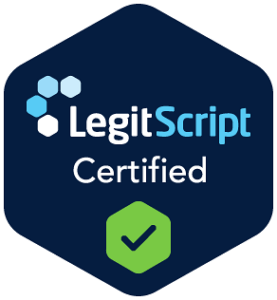
LegitScript Certified – Confirms that Tennessee Detox Center operates in full compliance with laws and regulations, and meets high standards for transparency and accountability in addiction treatment marketing.
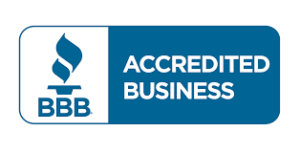
BBB Accredited – Demonstrates ethical business practices, commitment to customer satisfaction, and a trusted reputation within the community.
Psychology Today Verified – Indicates that Tennessee Detox Center is listed on Psychology Today, a trusted directory for verified mental health providers and treatment centers.
HIPAA Compliant – Ensures all patient health information (PHI) is protected and managed in accordance with strict federal privacy and data security standards.
ASAM Member – Tennessee Detox Center is a proud member of the American Society of Addiction Medicine (ASAM), reflecting a commitment to science-driven and evidence-based treatment standards.
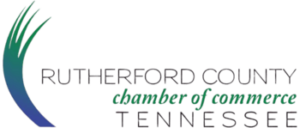
Rutherford County Chamber of Commerce – Membership signifies active participation in the local community and support for regional growth and civic collaboration.
Get Family Support Now
Supporting Families Through Recovery
We understand addiction affects the whole family. Our comprehensive family program helps rebuild trust and restore relationships.
Weekly Family Therapy Sessions
Educational Workshops
Support Groups
Communication Skills Training


[1] Office of the Commissioner. (2025, September 25). FDA and Kratom. U.S. Food And Drug Administration. https://www.fda.gov/news-events/public-health-focus/fda-and-kratom
[2] Kratom. (2022, March 25). National Institute on Drug Abuse. https://nida.nih.gov/research-topics/kratom
[3] Striley, C. W., Hoeflich, C. C., Viegas, A. T., Berkowitz, L. A., Matthews, E. G., Akin, L. P., Iheanyi-Okeahialam, C., Mansoor, U., & McCurdy, C. R. (2022). Health Effects Associated With Kratom (Mitragyna speciosa) and Polysubstance Use: A Narrative Review. Substance Abuse Research and Treatment, 16. https://doi.org/10.1177/11782218221095873
[4] Striley, C. W., Hoeflich, C. C., Viegas, A. T., Berkowitz, L. A., Matthews, E. G., Akin, L. P., Iheanyi-Okeahialam, C., Mansoor, U., & McCurdy, C. R. (2022b). Health Effects Associated With Kratom (Mitragyna speciosa) and Polysubstance Use: A Narrative Review. Substance Abuse Research and Treatment, 16. https://doi.org/10.1177/11782218221095873
[5] Smith, K. E., Sharma, A., Grundmann, O., & McCurdy, C. R. (2023). Kratom alkaloids: a blueprint? ACS Chemical Neuroscience, 14(2), 195–197. https://doi.org/10.1021/acschemneuro.2c00704
[6] Becker, D. E. (2012). Basic and Clinical Pharmacology of Autonomic Drugs. Anesthesia Progress, 59(4), 159–169. https://doi.org/10.2344/0003-3006-59.4.159

Medically Reviewed By:
Dr. Vahid Osman, M.D.
Board-Certified Psychiatrist and Addictionologist
Dr. Vahid Osman is a Board-Certified Psychiatrist and Addictionologist who has extensive experience in skillfully treating patients with mental illness, chemical dependency and developmental disorders. Dr. Osman has trained in Psychiatry in France and in Austin, Texas. Read more.

Clinically Reviewed By:
Josh Sprung, L.C.S.W.
Board Certified Clinical Social Worker
Joshua Sprung serves as a Clinical Reviewer at Tennessee Detox Center, bringing a wealth of expertise to ensure exceptional patient care. Read More
The Joint Commission – The Gold Seal of Approval® signifies that Tennessee Detox Center meets or exceeds rigorous performance standards in patient care, safety, and quality. It reflects a commitment to continuous improvement and clinical excellence.

LegitScript Certified – Confirms that Tennessee Detox Center operates in full compliance with laws and regulations, and meets high standards for transparency and accountability in addiction treatment marketing.

BBB Accredited – Demonstrates ethical business practices, commitment to customer satisfaction, and a trusted reputation within the community.
Psychology Today Verified – Indicates that Tennessee Detox Center is listed on Psychology Today, a trusted directory for verified mental health providers and treatment centers.
HIPAA Compliant – Ensures all patient health information (PHI) is protected and managed in accordance with strict federal privacy and data security standards.
ASAM Member – Tennessee Detox Center is a proud member of the American Society of Addiction Medicine (ASAM), reflecting a commitment to science-driven and evidence-based treatment standards.

Rutherford County Chamber of Commerce – Membership signifies active participation in the local community and support for regional growth and civic collaboration.
Holistic Detox Services
Evidence-Based Treatment
Hear directly from those who have walked the path to recovery. Our patients’ stories highlight the compassionate care, effective programs, and life-changing support they’ve experienced. Let their journeys inspire you as you take your first steps toward healing.
Thank you all so much!
The facility itself is clean, well-maintained, and equipped with all the necessary amenities to provide a serene and supportive environment.
What truly stands out is the personalized approach to care. The team developed a treatment plan tailored to my specific needs, incorporating both medical and holistic therapies. This comprehensive approach not only addressed my physical withdrawal symptoms but also supported my mental and emotional well-being.
The counselors and therapists offer a range of therapies that helped me understand the root causes of my addiction and develop effective coping strategies. Group therapy sessions provided a safe space to share experiences and gain insights from others on similar journeys.
Overall, my experience with this medical detox program was life-changing. The compassionate and skilled staff, combined with the personalized treatment approach, provided me with the foundation I needed for a successful recovery. I highly recommend this facility to anyone seeking a safe and supportive environment for detox and recovery.
But it's the people who make this place truly special. The staff, they've been there, they understand the struggle. No judgment, just support, encouragement, and a genuine desire to help you heal. They treated me like an old friend, even though I was just visiting for my buddy.
They've got a whole range of therapies to help you on your journey – individual counseling, group sessions, and even a fitness center to get you moving again. It's not just about detox. It's about rebuilding your life from the ground up.
My friend, the owner, he's living proof that this place works. He poured his heart into creating a haven for those seeking recovery, and his passion shines through in every detail.
So, if you're ready to take that first step, this is the place. Trust me, they'll walk beside you every step of the way.


